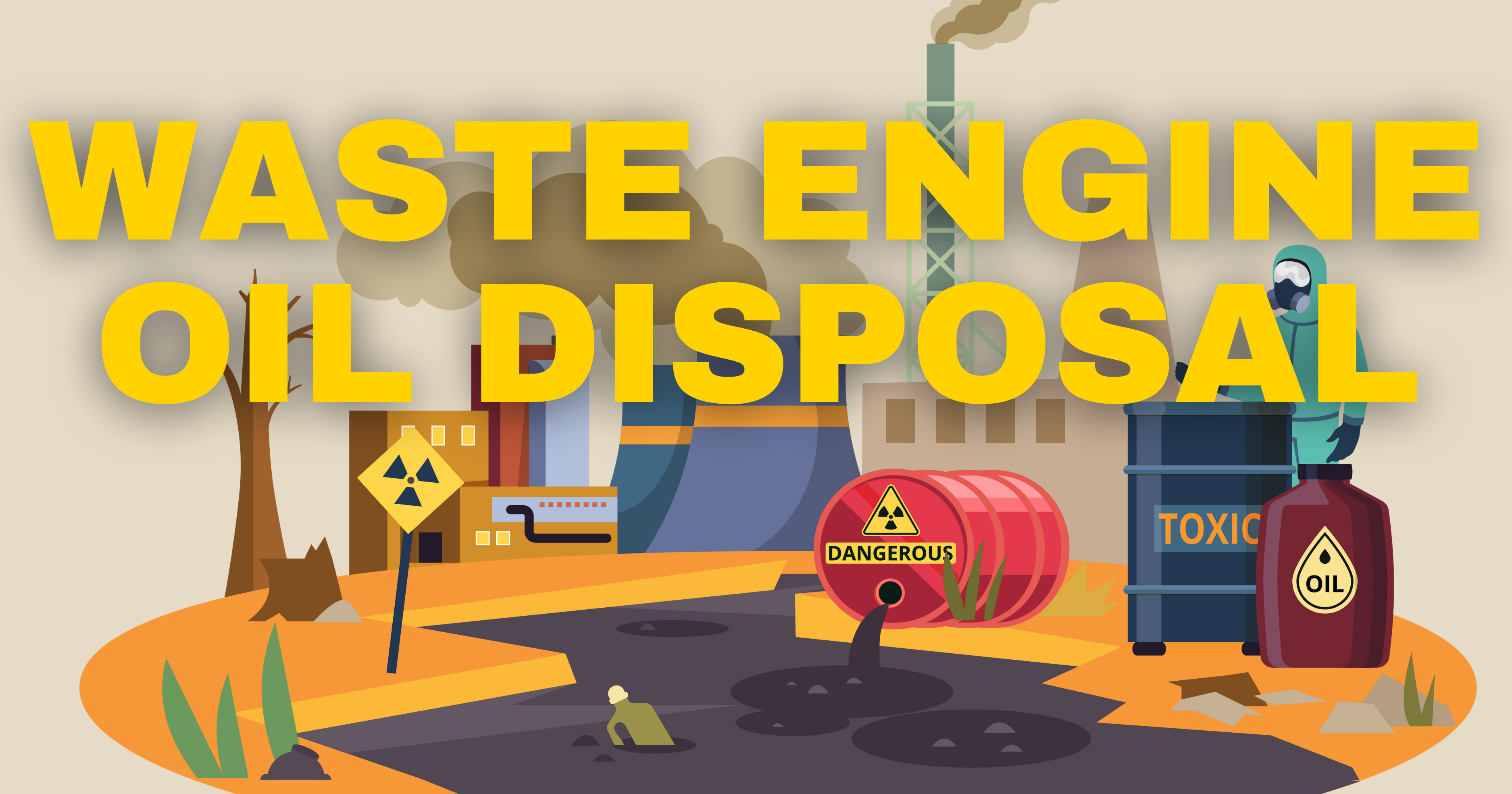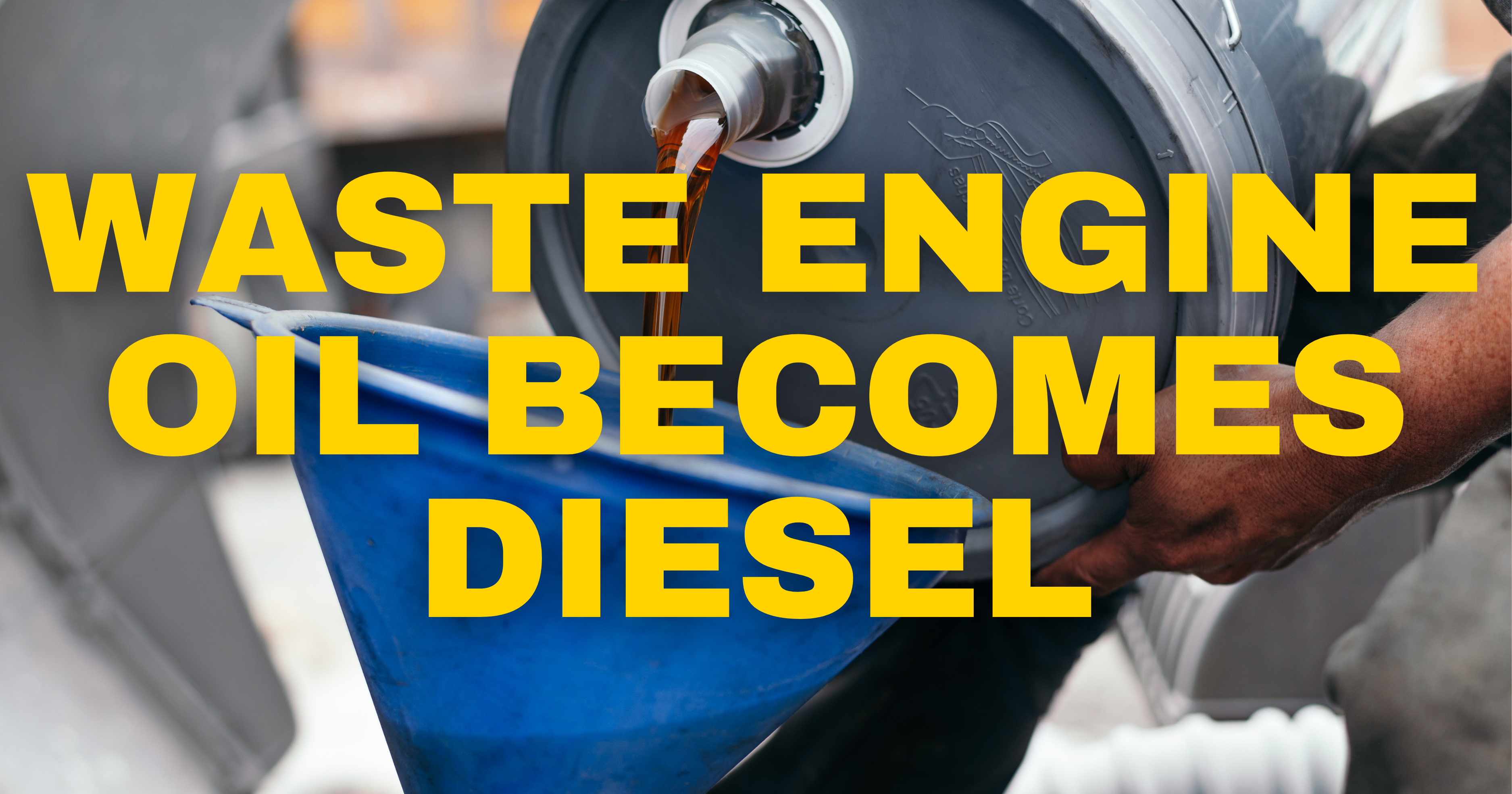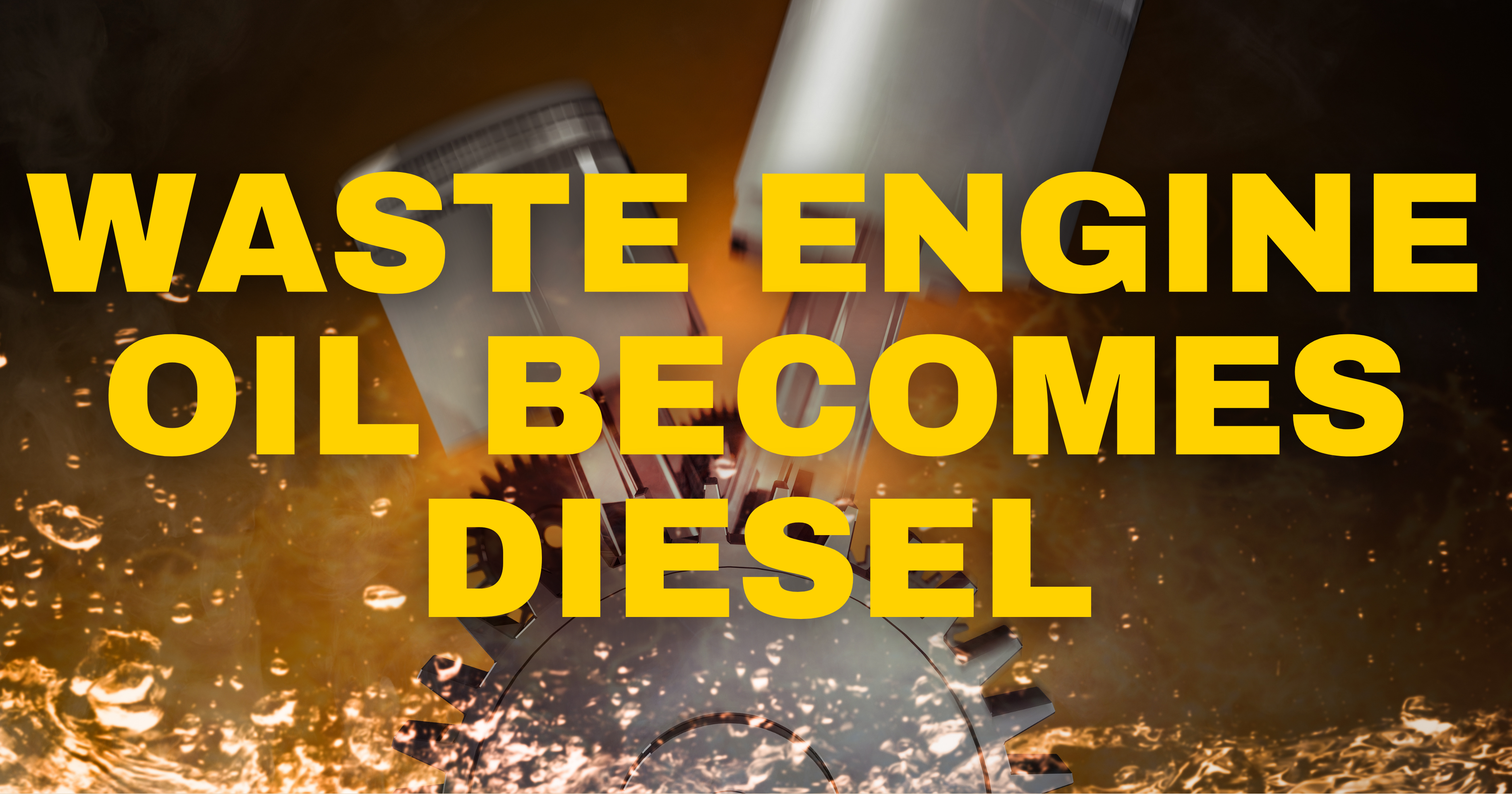Knowing Waste Engine Oil to diesel
Every time a car or industrial machine gets into action, it uses engine oil to lubricate moving parts, reduce friction and manage heat. Over time, these particles from the engine get into this oil, which results in debris from combustion and other impurities, leading to what we call “waste engine oil to diesel.” This no longer serves its original purpose efficiently so that it has to be changed. However, the environment and health are threatened just because of the toxic component present in this oil in the process of disposal of the oil.
This means, instead of just considering waste engine oil as a problem, it presents a procedure for conversion of waste engine oil to diesel, which offers means through which this resource would be recycled. The production procedure would not only solve the problem of disposing of such used oil but also contribute to the additional production of diesel fuel-that is a critical component for transportation, agriculture, and industry. In this piece, we are going to track the process of how waste engine oil happens, traces the remanufacturing process of a diesel fuel, how there will be preservation of both environment and economy, possible drawbacks at each stage, as well.
Problem of Waste Engine Oil Disposal

There are millions of vehicles and machines working all over the world and therefore, creating huge production of waste engine oil. The sad part is it contaminates the environment with its improper disposal, makes a wastage of resources as well as regulatory issues in hand. Now, break down the key problems facing the disposal of waste engine oil:
Environmental Contamination
Waste engine oil, when disposed of improperly, either by pouring it into landfills, spilling it into the soil, or dumping it in waterways, brings harmful chemicals and heavy metals into the environment. A small quantity of waste oil can pollute huge amounts of water, which is not consumable, nor for agricultural use or wildlife. The pollutants last for many years in soil and water and harm the ecosystems and even the aquatic life, plants, and animals.
Missed Resource Opportunities
Although termed as “waste,” used engine oil still contains a rich load of hydrocarbons and other energy-rich compounds. Loss of its potential value as an energy source occurs when it is merely discarded without attempting to recover resources within it. Waste engine oil can be turned into diesel, so waste engine oil to diesel fuel for the recovery of lost value and the reduced dependency on traditional fossil fuels for burning.
Pollution from Burning Waste Oil
In some areas, waste oil is disposed by burning. This produces dangerous pollutants such as among others sulphur compounds heavy metals, and particulate. The gaseous effects degrade the air quality, posing health threats to humans through respiratory diseases particularly in overcrowded cities.
Regulatory and Compliance Issues
This makes it hazardous waste, which the government of many countries has regulated. Companies need to follow strict guidelines when it comes to disposal. Not following these guidelines might get them fined, and it can lead to a lawsuit and reputational damage. Converting waste engine oil to diesel, therefore, is an avenue that is compliant and reduces the burden of hazardous waste disposal.
Given these challenges, the conversion of waste engine oil to diesel is a sustainable and innovative approach that provides an environmentally friendly solution to the waste oil problem.
Why Convert Waste Engine Oil to Diesel?
Converting waste engine oil to diesel offers many benefits across environmental, economic, and energy-related domains. Here‘s a closer look at why this process is gaining traction worldwide:
Environmental Conservation
The chance of contamination will significantly be reduced in converting waste engine oil to diesel. Every gallon of waste oil converted instead of being dumped means that toxins don’t reach our environment and our soil, water, and air are not poisoned with such pollutants.
Waste engine oil has a high percentage of hydrocarbons. It becomes an energy resource that could be used for powering any sectors. Recovery of energy is done in the transformation process into diesel fuel. That will support the conservation of energy because there is minimal dependence on extracting fresh crude oil and its refining processes.
Supports the Circular Economy
An example of a circular economy approach where materials are constantly reused and repurposed is the conversion of waste engine oil to diesel. Used oil that would otherwise be discarded can be converted into a product that feeds back into the economy. This reduces waste and ensures sustainability in the long run.
Economic Opportunities
More profit in selling the diesel converted by selling the companies participating in converting waste engine oil to diesel. Also, such business and industries employing recycled diesel can save them their expenses on fuel in general; hence, less cost-effective than regular diesel.
The carbon footprint of diesel from waste oil is much smaller compared to fresh fossil fuels-derived diesel. This is the main reason why this process becomes an important part of global efforts to reduce greenhouse gas emissions in combating climate change.
The Conversion Process: How Waste Engine Oil Becomes Diesel

The process of converting used engine oil into diesel is made up of many steps in the process, using advanced technologies, careful handling, and precise equipment. Below is a detail of each stage of this transformation:
Collection and Transportation of Used Engine Oil
Starting with collection-that might be done from many different places, such as car and machinery workshops, factories, and operators-collected used engine oil is transferred carefully to the processing factory.
Purification and Pre-treatment
The contaminants in waste engine oil, such as dirt, metal particles, and water, must be separated before it can be converted. Pre-treatment for the oil filters out these impurities in a process that removes solids and moisture from the oil using centrifugation. It leaves the oil cleaner, ready to undergo subsequent processes. Such purification ensures that the high-quality diesel is produced.
Thermal Distillation
After the oil has been purified, it is heated in a distillation chamber. Distillation is the process through which the temperature of the oil is increased to boiling point and various fractions evaporate at their specific boiling points. The lighter hydrocarbons separate from the heavier fractions as the temperature increases, and thus the diesel fuel portion can be isolated. This is a process necessary for waste engine oil to be transformed into a usable fuel form.
Catalytic Treatment
The diesel fraction after distillation undergoes catalytic treatment for quality. Catalysts are chemical agents that break large hydrocarbon molecules into smaller stable ones. This increases stability and the efficiency of the combustion in the fuel to burn, thereby making it acceptable for engines. Catalytic treatment will ensure the cleanliness of burning by the produced diesel to fuel standards.
Hydrofinishing
Hydrofinishing is a refining process that removes any impurities left and stabilizes diesel. Hydrogen, in most cases, is used in the treatment of this fuel, which lowers some pollutants like sulfur content within it. The end result is refined high-quality diesel fuel in good performance in engines without flouting environmental standards.
Once hydrofinishing is completed, it would be mixed with additives dependent on the desired performance and sent off to the lab to be further tested. The later stage is where the oil undergoes intense testing against purity, stability, and performance. Once the oil has passed, then it would be shipped off and marketed for use.
The Many Advantages of Converting Waste Engine Oil to Diesel Fuel

There are many reasons and advantages to converting waste engine oil to diesel fuel. It is dramatic on many accounts:
Environmental Benefits
Less Pollution:
It prevents harmful chemicals from the waste oil from contaminating lands and rivers. This makes the pollution load of disposed waste oils lesser.
Save Resources:
The production of diesel through waste oil mitigates the extraction of fresh fossil fuels thus conserving natural resources as well as putting less pressure on natural resources.
Conserve Biodiversity:
The conservation of the ecosystem and biodiversities helps reduce pollution, therefore creating a home for the wildlife, and that would in turn help maintain healthy ecosystems.
Economic Gains
Reduces Fuel Prices:
Industries relying on diesel should find a more cost-effective purchase by obtaining a fuel obtained from waste oil instead of using the normal diesel fuels.
Revenue Generation:
Waste engine oil to diesel plants can sell its product to other industries in the economy, thereby forming new revenue streams.
Disposal Costs Reduced:
Recycled waste oil does away with disposal costs since, instead of being waste oil, it is a highly valued resource.
Energy Benefits
More Efficient Energy Recovery:
Crude conversion of waste engine oil to diesel maximizes energy recovery from used oils, providing a reliable and high–energy fuel.
Renewable Diesel Supply:
Diesel from waste oil is a renewable source of fuel, therefore giving energy security and reducing the usage of imported oil.
Industrial Uses of Diesel From Waste Engine Oil

Diesel fuel from waste engine oil has numerous uses. It finds its application in many different industries that employ diesel power.
Power Generation
This kind of fuel is widely applied for electricity generation in distant sites, power back-up and emergency source during shutdown. The diesel is refined from the used oil; therefore, it has efficient cost with reliable application
Application of Diesel to Other Equipment
The biggest share of diesel is as tractor’s fuel, which among others, includes use on different agro-machinery tools. Recycling of this particular diesel reduces the high prices farmers incur, majorly so far in rural and less developing countries where fuel cost rates are very high.
Industrial Machine
In the manufacturing and construction industries, heavy machinery and equipment have to be powered by diesel. Low-cost fuel for them could be waste oil converted into diesel, thus saving a business possibly in operational costs while staying within environmental considerations.
Transportation
Diesel powers trucks, buses, ships, among other vehicles. Waste engine oil to diesel can be used in a fleet of vehicles whose expenditure on fuel has to go down and reduce their environment footprint.
Future prospects:
Creating Waste Engine Oil to Diesel Technology
The conversion technology of waste engine oil to diesel is on a roll, following the pace set by the demand for cleaner energy. Under development are innovations such as:
Advanced Catalytic Processes
New catalysts are developed that will raise the quality of fuel while increasing efficiency and reducing harmful emissions in the waste engine oil to diesel fuel. The ability of the hydrocarbons to break down will enable cleaner diesel fuel to burn.
Automation and AI Incorporation
AI-based systems can optimize conversion efficiency such that all parts of the process are carried out at full capacity. The other benefit of automation is reduced human error, making it safer and more reliable.
Small-Scale Conversion Units
Small, modular conversion units are in development for remote or small-scale operations. These units allow small businesses and rural communities to have their waste oil converted within their communities, thereby reducing transportation costs and enhancing the energy self-sufficiency of these units.
Conclusion
The greatest change that would address every other issue, from the environmental to the monetary and that of energy one, involves the conversion of waste engine oil to diesel. Used oils help in recycling, which save more of the natural resources, maintain the environment, and afford a renewable clean source of energy that gives returns for most industries. Continued advances in technology mean increases for possible conversion from wastes, such as waste oils, which produce conversion into a suitable quantity of diesel. Companies like Veera Group are pioneering waste oil recycling, making waste oil into diesel and beyond towards a cleaner, more sustainable future.
